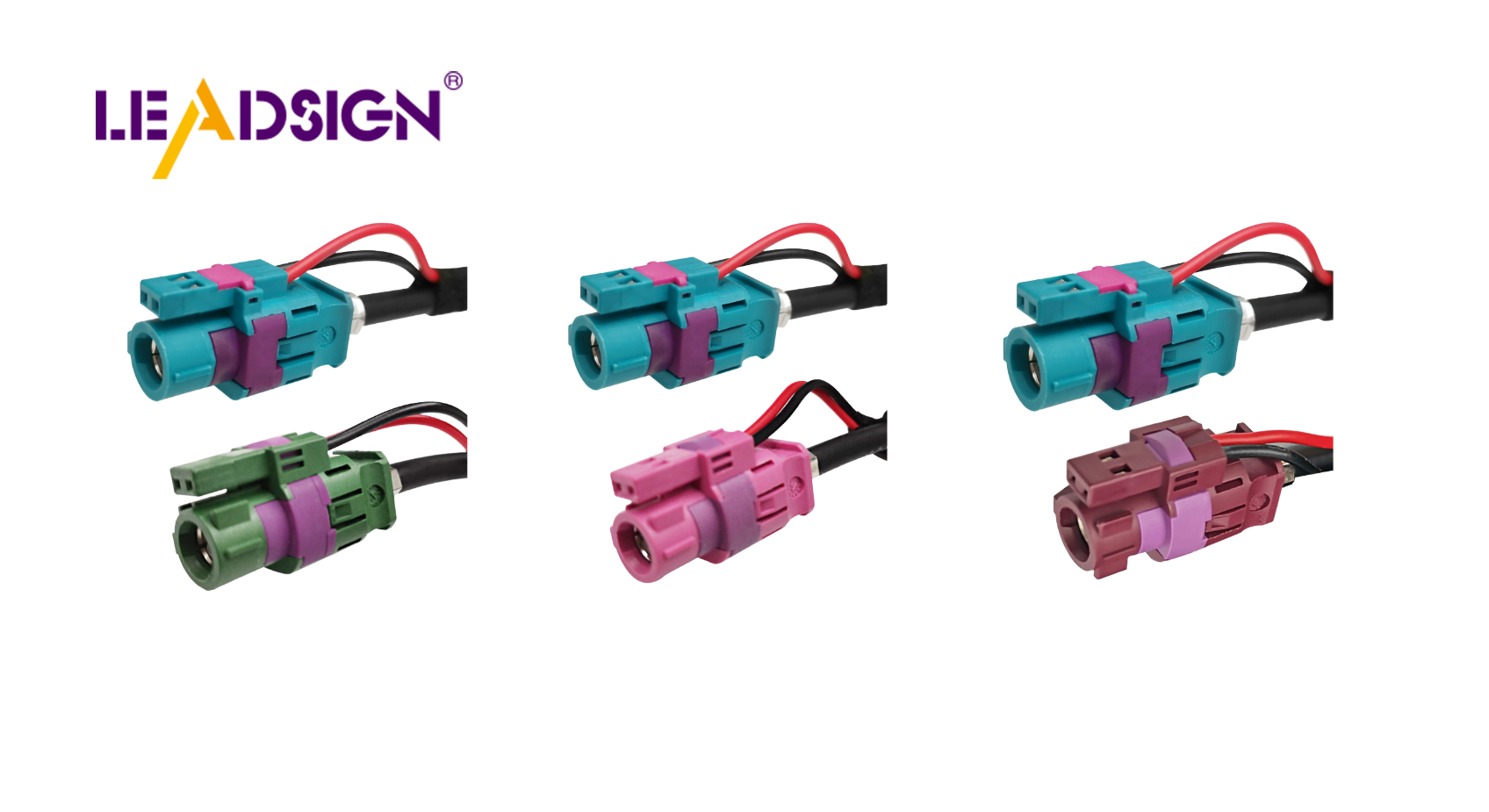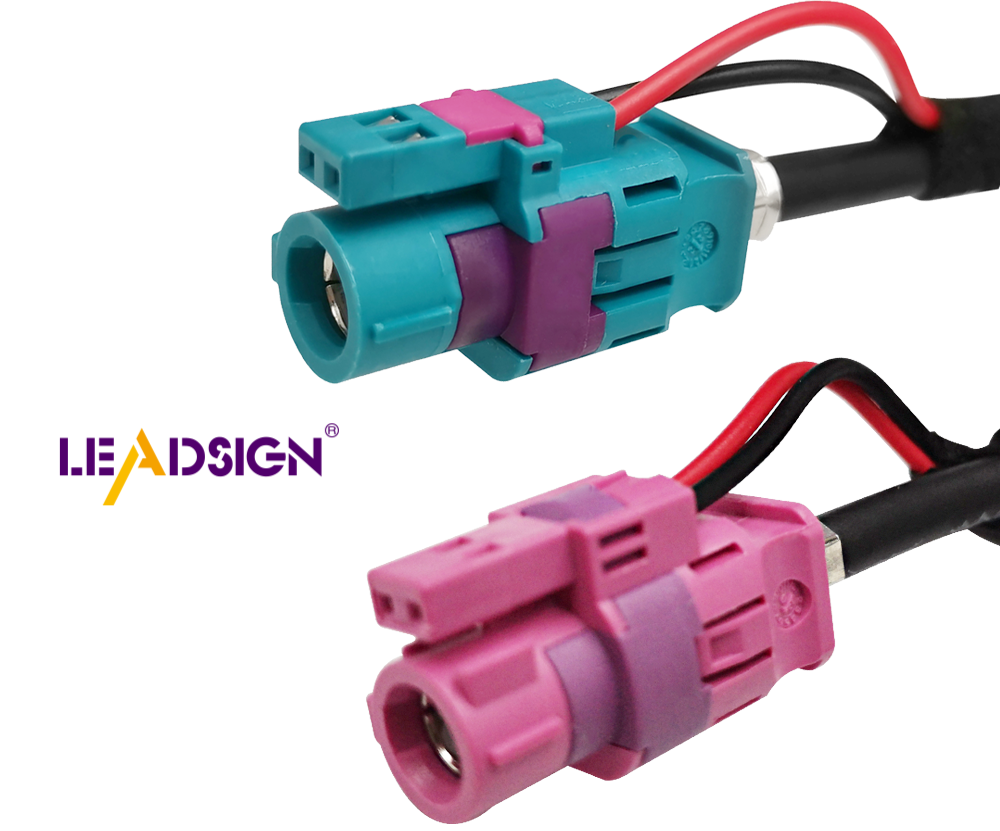Understanding Copper and Aluminum in 2 Pin Automotive Wiring

In 2 pin car wiring wire, selecting the right material is crucial. Copper is excellent because it conducts electricity efficiently and has a long lifespan. It outperforms aluminum in terms of stability and reliability. However, copper is more expensive. Aluminum is lighter and more affordable, making it a cost-effective option. Yet, aluminum only conducts 61% as effectively as copper. Therefore, for critical car wiring wire applications, copper remains the best choice due to its dependability and durability.
Key Takeaways
Copper wiring is the best choice for critical automotive applications due to its high conductivity, durability, and reliability.
Aluminum wiring is a cost-effective alternative, being lighter and cheaper, but it has lower conductivity and is more prone to corrosion.
When selecting wire size, remember that copper can carry more power with a smaller gauge compared to aluminum, which may require larger sizes for the same performance.
For important systems in your car, prioritize copper wiring to ensure safety and efficiency, while aluminum can be used for less critical applications.
To prevent corrosion in aluminum wiring, use special paste at connections and regularly check for damage to maintain safety.
Understanding the strengths and weaknesses of both materials helps you make informed decisions that enhance your vehicle's performance and longevity.
Advantages and Disadvantages of Copper Wiring
Advantages of Copper
High Conductivity
Copper is great for carrying electricity. It works better than aluminum. Copper wiring is used a lot in cars. It moves electricity very well. This makes copper a top choice.
Durability and Flexibility
Copper wires last a long time. They are strong and bend easily. You can fit them in small spaces. Copper wires don't break easily. They are good for important jobs.
Disadvantages of Copper
Higher Cost
Copper costs more money. It is pricier than aluminum. This can affect your spending. But, many people still pick copper. It works really well.
Heavier Weight
Copper wires weigh more. This can matter if weight is important. Aluminum is lighter. But, copper's good points often win. It is strong and carries electricity well.
Advantages and Disadvantages of Aluminum Wiring
Advantages of Aluminum
Lower Cost
Aluminum wires are cheaper. They cost less than copper. This makes them good for saving money. You can use the extra money for other car needs. Aluminum is a smart choice for budgets.
Lightweight
Aluminum wires are light. They weigh less than copper. This helps cars go faster. Lighter wires make cars use less fuel. They are also easier to put in.
Disadvantages of Aluminum
Lower Conductivity
Aluminum wires don't carry electricity as well. They work only 61% as good as copper. You might need bigger wires for the same power. This can be a problem if space is tight.
Susceptibility to Corrosion
Aluminum wires can rust. Water and other metals make them rust. Rust makes wires hot and can cause fires. Use special paste to stop rust. Check wires often to keep them safe.
Main Differences Between Copper and Aluminum Wiring
When picking copper or aluminum wire for cars, know their differences. Each has good and bad points that affect your choice.
Conductivity Check
Copper wire is great at carrying electricity. It works well for big jobs. Aluminum wire only carries 61% as well as copper. You might need bigger aluminum wires for the same power. If you want the best electricity flow, pick copper.
Weight and Cost Look
Weight and cost matter when choosing wires. Aluminum is lighter, just 30% of copper's weight. This helps make cars lighter. Aluminum is also cheaper than copper, saving money. But copper costs more because it works better and lasts longer.
Strength and Lasting Power
Strength is key when looking at copper and aluminum. Copper wire lasts long and stays strong. It is good for important uses. Aluminum can get weak and rust, making it less lasting. For strong and long-lasting wires, copper is best.
Practical Guide for 2 Pin Automotive Wiring

When working with car wires, picking the right size is key. It helps your car work well and stay safe. This guide shows why wire size matters and how to use copper and aluminum wires right.
Size Chart for Automotive Wiring
Choosing the right wire size keeps your car's power system working well. A copper vs aluminum wire size chart is helpful. It shows what size each wire needs based on how well they carry electricity.
Copper Wire: Copper carries electricity well. It needs a smaller size than aluminum for the same power. You can use thinner copper wires without losing performance.
Aluminum Wire: Aluminum is lighter and cheaper but carries less electricity. You need a bigger size to carry the same power as copper. This matters if space is tight in your car.
Knowing these differences helps you pick the right wire. This keeps your car safe and working well.
Application Guide for Copper and Aluminum
Using the right wire in your car depends on cost, weight, and what your car needs.
Copper Wire Applications:
Best for important systems where reliability is key.
Use where space is tight, as smaller sizes handle more power.
Good for places needing bending or moving because it's flexible and strong.
Aluminum Wire Applications:
Good for less important systems where saving money matters.
Best where weight needs to be low, like in race cars.
Install carefully to stop rust, using special paste at joins.
By knowing how to use each wire type, you can make your car's wiring work well and save money.
Copper and aluminum have different benefits for car wiring. Copper is great because it carries electricity well and lasts long. It's best for important jobs. Aluminum is cheaper and lighter, good for less important tasks.
Recommendation: Use copper for important wiring where it needs to work well and last. If saving money and weight is important, aluminum is a good choice. Knowing these differences helps you pick the right wire, keeping your car's wiring safe and working well.
FAQ
What are the main differences between copper and aluminum wiring?
Copper and aluminum wires are different. Copper carries electricity well. It's good for important car parts. Copper is strong and bends easily. Aluminum is lighter and cheaper. But, it doesn't carry electricity as well and can rust.
Why is copper preferred for automotive wiring?
Copper is great for car wires. It moves electricity well and lasts long. It's strong and bends easily. This makes it good for important car parts.
Is aluminum wiring safe for cars?
Aluminum wires can be safe if used right. Use special paste to stop rust. Check connections often. For less important parts, aluminum saves money.
How does the weight of wiring affect vehicle performance?
Lighter wires, like aluminum, help cars go faster. They use less fuel. But, you need to make sure they work well too.
Can I mix copper and aluminum wiring in my car?
You can mix copper and aluminum wires. Use special connectors to stop rust. Make sure they fit well. Ask an expert if unsure.
What should I consider when choosing wire size for my car?
Think about how well the wire carries electricity. Copper wires can be smaller. Aluminum wires might need to be bigger.
How do I prevent corrosion in aluminum wiring?
Use special paste on aluminum wires to stop rust. Check them often for damage. Install them properly to keep them safe.
Are there any cost benefits to using aluminum wiring?
Yes, aluminum wires cost less than copper. If money is tight, use aluminum for less important parts. Save money for other car needs.
What is the lifespan of copper vs. aluminum wiring?
Copper wires last longer. They don't rust easily. Aluminum wires might wear out faster. Copper is better for long-lasting use.
How do I decide which type of wiring to use?
Choose based on your car's needs. Use copper for important parts. Pick aluminum if weight and cost matter more. Always think about what your car needs.
See Also
Understanding HSD Connectors Within Automotive Applications
Enhancing Data Transfer in Vehicles With Advanced Connectors
Benefits of FAKRA PCB Connectors for Automotive Use

